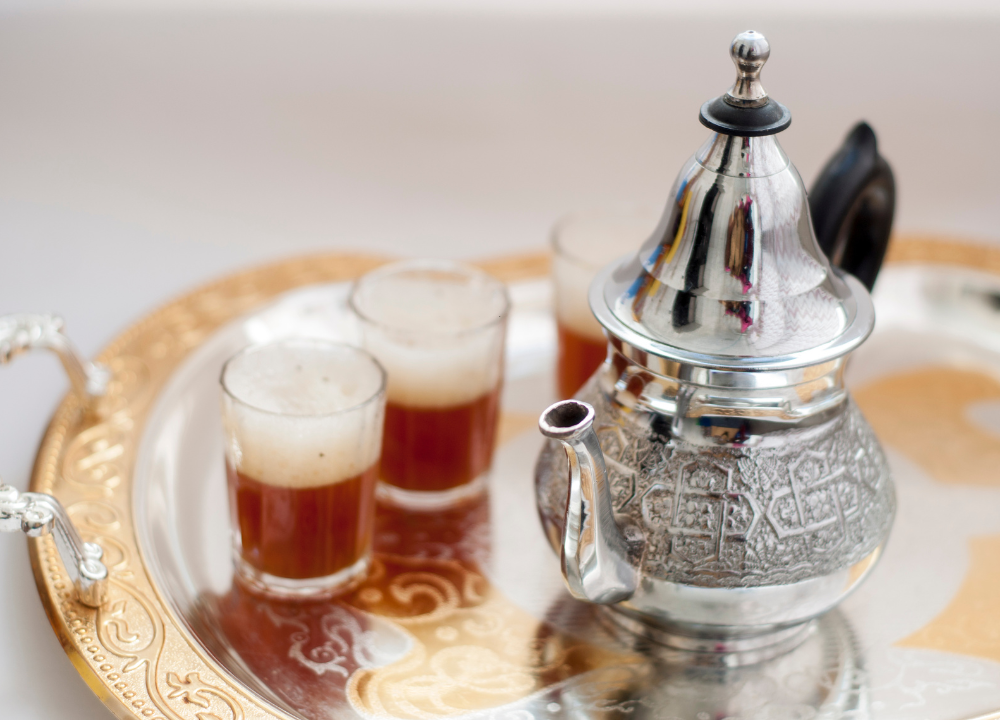From the bustling streets of Marrakech to the quiet corners of Fes, coffee rituals vary but hold a special place in the hearts of many. This guide will explore the fascinating history behind Moroccan coffee, its cultural significance, and a simple recipe to make your own delicious cup at home.
Introduction To Moroccan Coffee
Moroccan coffee is more than just a drink. It is a reflection of the rich history and vibrant culture of Morocco. The blend of flavors, aromas, and traditions makes this coffee unique.
What Makes Moroccan Coffee Unique?
Moroccan coffee stands out for several reasons:
- Flavor Fusion: It combines rich coffee with spices.
- Preparation Style: Coffee is brewed in a traditional pot called a dallah.
- Presentation: Served in small, decorative cups.
- Social Ritual: Coffee is often enjoyed with friends and family.
Spices like cardamom, cinnamon, and sugar create a unique taste. The coffee is often served with mint or other herbs. This blend of flavors creates a warm and inviting experience. The preparation of Moroccan coffee is an art. It involves careful brewing and precise pouring.
Here’s a quick comparison of Moroccan coffee and regular coffee:
| Feature | Moroccan Coffee | Regular Coffee |
|---|---|---|
| Spices | Often includes cardamom and cinnamon | Usually served plain |
| Serving Style | Small decorative cups | Standard coffee mugs |
| Social Aspect | Shared with family and friends | Often a solo experience |
These features make Moroccan coffee a delightful experience for the senses.
An Overview Of Moroccan Coffee Culture
Moroccan coffee culture is rich and welcoming. Coffee is often a part of social gatherings. It is a way to connect with friends and family. In many homes, preparing coffee is a ritual. It involves selecting the right beans and spices.
Here are some key aspects of Moroccan coffee culture:
- Hospitality: Offering coffee to guests is a sign of respect.
- Community: Coffee shops serve as social hubs.
- Rituals: Coffee is often served during special occasions.
Many Moroccans enjoy their coffee with sweets or pastries. This enhances the experience. The atmosphere in coffee shops is lively. People gather to discuss daily life and share stories.
In rural areas, coffee preparation can be more traditional. Families may have their own unique recipes. They often pass them down through generations. This helps preserve the cultural heritage of Morocco. The love for coffee continues to grow, both locally and globally.
The History Of Moroccan Coffee
The way coffee is prepared and enjoyed in Morocco tells a unique story. This section explores the history of Moroccan coffee, its arrival, and its influences.
Coffee’s Arrival In Morocco
Coffee made its first appearance in Morocco during the 16th century. The country was part of trade routes that connected Europe, the Middle East, and Africa. Traders brought coffee beans along with other goods. The drink quickly became popular among the Moroccan people.
Several factors contributed to its rise:
- Trade connections with the Ottoman Empire.
- Cultural exchanges with European nations.
- Local customs of hospitality and gathering.
Initially, coffee was a luxury. Only the wealthy could afford it. Over time, it became accessible to everyone. By the 18th century, coffee shops known as “qahwa” began to appear in cities. These coffee houses became social hubs. People gathered to drink coffee, share stories, and discuss ideas. Here’s a simple table showing the timeline of coffee’s arrival:
| Year | Event |
|---|---|
| 16th Century | Coffee arrives in Morocco through trade. |
| 18th Century | Establishment of coffee houses in cities. |
Today, coffee is a staple in Moroccan culture. It represents hospitality and warmth. The rich flavors and unique preparation methods continue to attract people around the world.
Influences From The Arab World And Beyond
The history of Moroccan coffee is deeply influenced by various cultures. The Arab world played a significant role in shaping coffee traditions. The introduction of coffee to the region came from the Middle East. The drink was associated with social gatherings and intellectual discussions.
Key influences include:
- Arabic coffee rituals: Coffee is often brewed strong and served in small cups.
- Spices and flavors: Moroccan coffee often includes spices like cinnamon and cardamom.
- Tea culture: The influence of tea traditions can be seen in coffee preparation.
Moroccan coffee also reflects European influences. French colonization introduced new brewing methods. The use of espresso machines became popular. This blending of styles created a unique coffee culture.
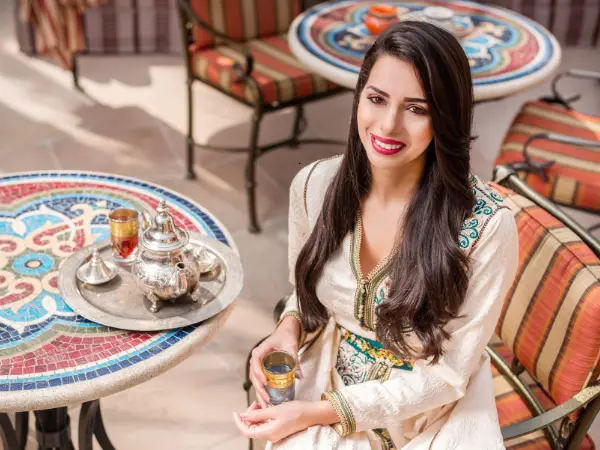
Traditions Surrounding Moroccan Coffee
Moroccan coffee is not just a drink; it is a rich cultural experience. The traditions surrounding it reflect the warmth of Moroccan hospitality. Coffee plays a key role in social gatherings, celebrations, and daily life. Understanding these traditions reveals the essence of Moroccan culture.
The Role Of Spices In Moroccan Coffee
Spices are essential in Moroccan coffee. They add unique flavors and health benefits. The most common spices include:
- Cinnamon: Adds warmth and sweetness.
- Cardamom: Offers a fragrant, aromatic touch.
- Cloves: Provides a strong, spicy kick.
- Anise: Delivers a hint of licorice flavor.
These spices transform regular coffee into a special drink. Each spice has its own benefits:
| Spice | Benefits |
|---|---|
| Cinnamon | May lower blood sugar levels. |
| Cardamom | Can aid digestion and freshen breath. |
| Cloves | Rich in antioxidants and anti-inflammatory. |
| Anise | Helps with digestion and has anti-bacterial properties. |
Preparing coffee with spices is an art. The spices are usually mixed with ground coffee before brewing. This method infuses the drink with rich flavors. Moroccan coffee becomes a delightful experience for the senses.
Serving Moroccan Coffee: Cups, Pots, And Etiquette
Serving Moroccan coffee is a ritual. It reflects the host’s hospitality. Coffee is traditionally served in small, decorative cups. These cups are often colorful and beautifully crafted.
The coffee is brewed in a special pot called a cafetière or ibrik. This pot allows the coffee to steep well. The coffee is poured from a height. This technique creates a frothy layer on top.
Etiquette is important in Moroccan coffee culture:
- Offer coffee to guests first.
- Pour with grace and care.
- Serve sugar on the side.
- Refill the cups as needed.
Guests often enjoy multiple cups. It’s a sign of friendship and respect. Sharing coffee strengthens bonds. This tradition creates a warm atmosphere for conversation and connection.
Cultural Significance Of Moroccan Coffee
Coffee brings people together, creating bonds and fostering community. Understanding the cultural significance of Moroccan coffee reveals the depth of its importance in daily life.
Coffee And Social Gatherings
In Morocco, coffee is central to social gatherings. Friends, family, and even strangers come together to enjoy a cup. These moments are filled with laughter, conversation, and connection. Moroccan coffee culture emphasizes relaxation and enjoyment.
Some key aspects of coffee and social gatherings include:
- Meeting Place: Coffee houses serve as popular spots for socializing.
- Community Spirit: Sharing coffee fosters a sense of togetherness.
- Tradition: Coffee rituals are often passed down through generations.
Here is a brief overview of popular coffee gatherings in Morocco:
| Type of Gathering | Description |
|---|---|
| Family Gatherings | Families bond over coffee, sharing stories and traditions. |
| Friend Meet-ups | Friends catch up and relax over coffee. |
| Cultural Events | Festivals often include coffee as part of the celebration. |
Each gathering is unique. Yet, they all share a common element: coffee. It is the heart of the meeting, bringing warmth and joy.
Coffee As A Symbol Of Hospitality
In Moroccan culture, coffee symbolizes hospitality. Offering coffee to guests is a cherished tradition. It shows respect and warmth. This gesture creates a welcoming atmosphere.
Important points about coffee and hospitality include:
- Welcoming Guests: Coffee is often the first thing served to visitors.
- Rituals: Preparing and serving coffee is an art form.
- Generosity: Sharing coffee reflects generosity and kindness.
Here are common practices related to coffee and hospitality:
| Practice | Meaning |
|---|---|
| Serving with Sweets | Sweets accompany coffee to enhance the experience. |
| Multiple Refills | Refilling cups shows continued hospitality. |
| Personal Touch | Each cup is made with care, often tailored to the guest’s taste. |
This deep-rooted connection between coffee and hospitality highlights its significance in Moroccan life. Offering coffee is not just a custom; it is a heartfelt expression of welcome.
Moroccan Coffee Recipe
Moroccan coffee is more than just a drink. It is a rich tradition filled with history and culture. The Moroccan Coffee Recipe combines strong coffee with spices and flavors.
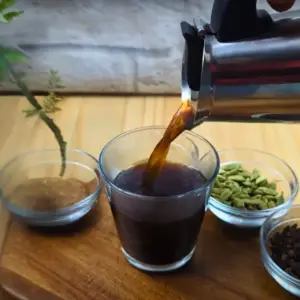
How to Make Moroccan Coffee
Equipment
- Small pan or saucepan
- Spoon for stirring
- Measuring Spoons
- Coffee mug or cup
- Coffee grinder (optional, if using whole coffee beans)
Ingredients
- 2 tablespoons ground coffee
- 1 small spoon sesame
- 1/2 teaspoon anise
- 1/2 teaspoon cinnamon
- 1/2 teaspoon ginger
- 1/2 liter water
Instructions
- To start, gather your ingredients. You will need:2 cups of water2 tablespoons of finely ground coffee1 teaspoon of ground cinnamon1 teaspoon of ground cardamom2 tablespoons of sugar (adjust to taste)These ingredients create a warm and fragrant drink. You can adjust the spices based on your taste. For example, add more cinnamon for extra warmth.Next, prepare your spices. Use fresh spices for the best flavor. Grind whole cardamom and cinnamon if possible. This step enhances the aroma. Combine the coffee and spices in a bowl. Mix well to ensure even flavor.
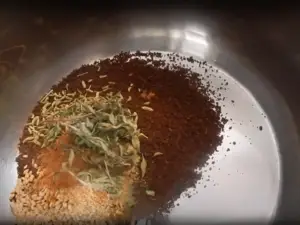
- Now it is time to brew your coffee. Follow these steps:Boil the water in a saucepan.Once boiling, remove it from heat.Add the coffee and spice mixture to the hot water.Stir gently to combine.Let it steep for about 5 minutes.After steeping, strain the coffee into a serving pot. A fine mesh strainer works well. This removes the grounds and spices. What you have now is a rich, aromatic brew.If you prefer a sweeter coffee, add sugar while it brews. Stir until dissolved. This step gives the coffee a balanced flavor. You can taste it before serving to adjust sweetness.
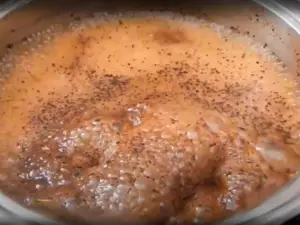
- Serving Moroccan coffee is an important part of the experience. Here’s how to do it:Pour the coffee into small cups.Garnish with a sprinkle of cinnamon on top.Pair with traditional Moroccan pastries or dates.Moroccan coffee is often shared among friends and family. The act of serving is as important as the drink itself. Take time to enjoy the aroma and flavor. It warms the soul.Feel free to experiment with flavors. Try adding other spices like nutmeg or ginger. Each variation brings a new experience. Enjoy your homemade Moroccan coffee!


